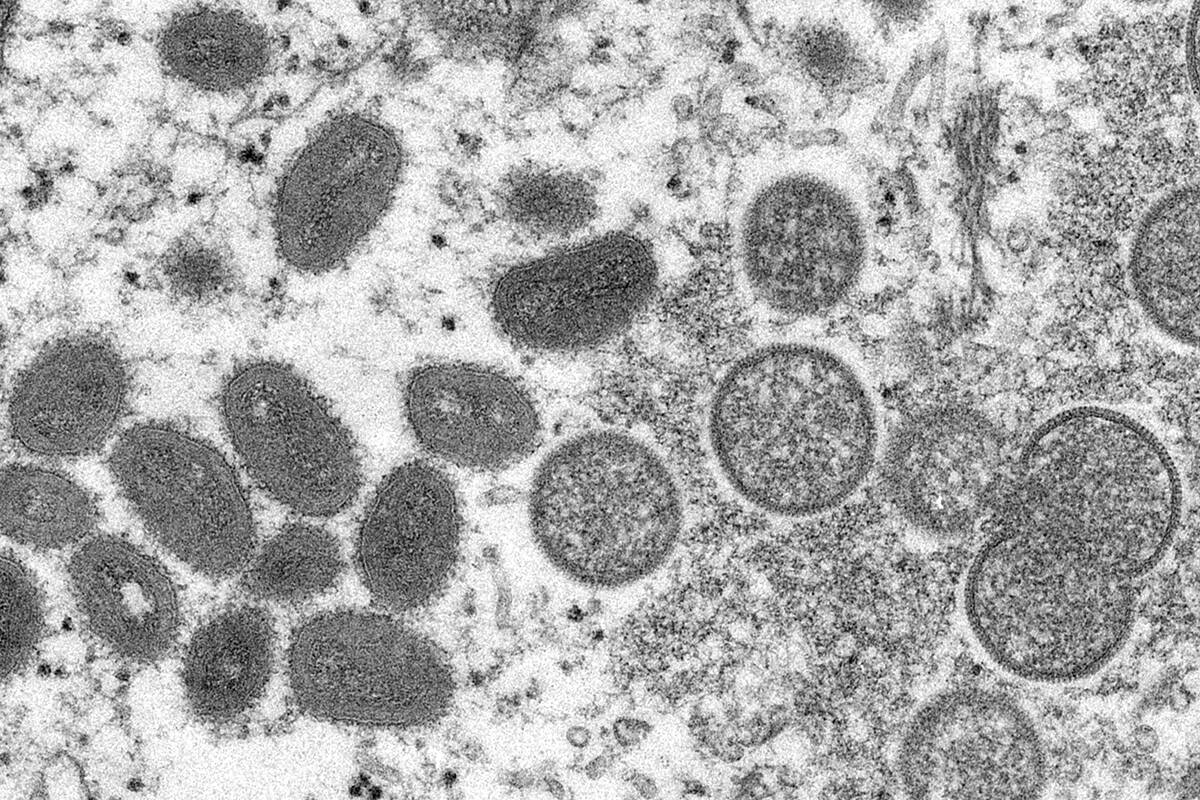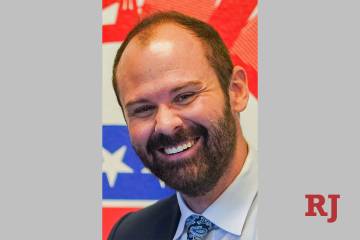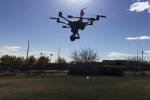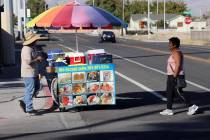Clark County reports first probable case of monkeypox
The U.S. outbreak of monkeypox has touched Clark County, with a presumptive positive case reported in a local man who recently traveled within the country, the Southern Nevada Health District said on Wednesday.
The man, who is in his 20s, was not hospitalized and is isolating at home. The health district is coordinating with the Centers for Disease Control and Prevention to perform confirmatory testing of the case, which was detected through the presentation of lesions and testing by the Nevada State Public Health Laboratory.
The district has not identified any additional cases through its investigation and contact tracing.
“I think it’s important to know that the community risk is low at this time,” Kimberly Franich, communicable disease manager for the district, said during an afternoon briefing.
“The transmission route is different than COVID,” she said. “It is with close skin-to-skin contact or prolonged face-to-face exposure.”
People with unknown rashes or lesions should contact their health care provider for an assessment and avoid sex and being intimate, she said.
Monkeypox may spread through close physical contact with infectious monkeypox sores, bodily fluids, contact with objects or fabrics that have been used by someone with monkeypox, sexual contact, or prolonged face-to-face contact, the district said in a news release.
The CDC has said it is unknown whether the virus spreads through semen or vaginal fluids.
In a June 3 briefing, CDC officials said most of the U.S. cases had been in people who have recently traveled internationally and in men who identify as having sex with men. In many of these cases, rashes began in the genital area.
However, anyone who has been in close contact with someone who has monkeypox is at risk.
As of Tuesday, the U.S. outbreak of the rare virus had grown to 72 confirmed cases across 17 states and the District of Columbia, according to the CDC. Globally, there have been 1,879 confirmed cases in 35 countries where monkeypox is not regularly seen, the federal agency said.
There have been no deaths in the U.S. due to monkeypox, CDC representative Kristen Nordlund said in an email.
The virus’ symptoms begin with fever, headache, muscle aches and exhaustion. The disease is characterized by the swelling of lymph nodes, as well as a rash that leads to lesions. The lesions may be painful and lead to scarring. The illness typically lasts two to four weeks.
Most people who contract monkeypox will have mild illness, according to the health district. People who are immunocompromised, young children, people who are pregnant or breastfeeding, and those with certain skin conditions may be more at risk for severe illness.
Antiviral drugs developed to treat smallpox, a more serious disease in the same family of viruses, and drugs for treating AIDS are being used to treat monkeypox patients, according to the CDC.
Vaccines developed to protect against smallpox, which was eradicated worldwide by 1980, are being given to contacts of monkeypox patients. Vaccination protects not only prior to exposure but also, authorities believe, may help to prevent monkeypox or make it less severe after exposure.
Monkeypox was first discovered in 1958 when two outbreaks of a pox-like disease occurred in colonies of monkeys kept for research, hence the name. The first human case of monkeypox was recorded in 1970 in the Democratic Republic of Congo.
Monkeypox is regularly found in several Central and West African countries. Cases in people outside Africa are often linked to international travel or imported animals. African rodents and non-human primates such as monkeys may harbor the virus and infect people, according to the CDC.
The last monkeypox outbreak in the U.S. was in 2003, when 47 confirmed and probable cases were reported, all from contact with pet prairie dogs. The pets were infected after being housed near imported small mammals from Ghana, according to the CDC. This was the first time that human monkeypox was reported outside of Africa.
Contact Mary Hynes at mhynes@reviewjournal.com or 702-383-0336. Follow @MaryHynes1 on Twitter.




























